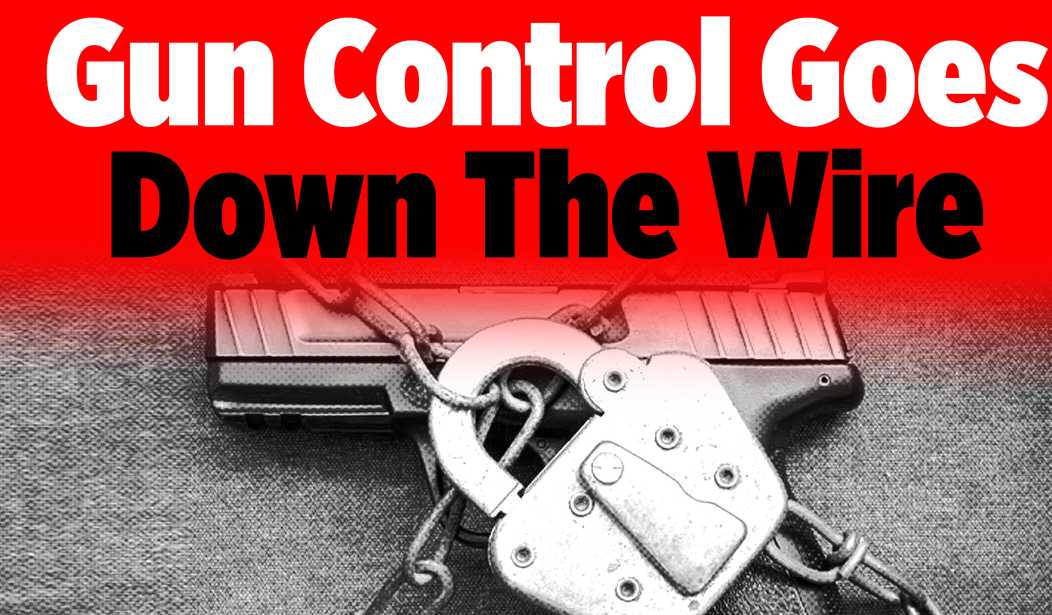Massachusetts’ legislature wrapped up this year’s session early Monday morning, and the head of the Gun Owners Action League says that while a few of the more egregious gun control items ended up on the chopping block, there are still several items of concern and dubious constitutionality that made it across the finish line.
Jim Wallace shared a little bit of good news for the Bearing Arms’ Cam & Co audience regarding gun control language that was quietly tacked on to a bill dealing with IT security within the state’s judicial system. While the underlying amendment remains in place, a couple of the more burdensome new requirements for concealed carry holders were dropped from the bill before it was received final approval from lawmakers; reducing the length of the license to three years from the current six, and requiring all new and renewal applications to have an in-person interview with their local police department.
According to Wallace, police were blindsided by those changes and argued against them, pointing out the impact that the bureaucratic mandates would have on their departments and questioning why, if the state was moving to a “shall issue” system, in-person interviews were even necessary.
Wallace says it’s all part of a broader design by anti-gun politicians in the state to make it both a pain the neck to apply and to continue to give police departments as much leeway as possible to deny permits. While the state is dropping its “good reason” requirement as they should, Wallace believes officials are instead creating a new path to arbitrarily deny someone a license to carry through “suitability” standards.
Under Massachusetts’ post-Bruen licensing guidelines issued by Attorney General Maura Healey and Gov. Charlie Baker’s Executive Office of Public Safety and Security, police still have the authority to question someone’s suitability to carry a gun, even if they’re not disqualified by law from owning one.
The statute instructs that a “determination of unsuitability shall be based on: (i) reliable and credible information that the applicant or licensee has exhibited or engaged in behavior that suggests that, if issued a license, the applicant or licensee may create a risk to public safety; or (ii) existing factors that suggest that, if issued a license, the applicant or licensee may create a risk to public safety.”
As Wallace points out, that’s a pretty broad standard, and one that’s entirely subjective. It’s entirely up to law enforcement to decide if someone’s behavior “may” create a risk to public safety if they’re permitted access to their right to bear arms, and there are undoubtably going to be some jurisdictions in the state that will take the view that few people, if any, are suitable to carry a gun for self-defense.
Wallace would have been happy to point out all of the legal problems with replacing one subjective standard with another, but nobody reached out to him any more than law enforcement was consulted.
“It would have been nice if they had given the courtesy of a phone call so we could have consulted with them,” he said Monday. “They didn’t include the stakeholders in any of this.”
Baker said last week that he’d talked to Democratic leaders and hoped to have a bill he can sign.
“It’s certainly my hope we get something that we can use to both validate the laws we already have here in the commonwealth but also to a couple other things we need to do to comply with what the federal Supreme Court did,” he said.
With the subjective “suitability” standards still in place, I don’t think Baker got his wish, but Wallace didn’t sound too optimistic about the prospects for a veto, focusing instead on the likelihood of a legal challenge. Still, I know that GOAL will be encouraging their members to contact the governor and urge him to reject this bill, which still places undue burdens on both police and applicants by requiring in-person interviews for all new licensees in addition to the arbitrary and subjective standards that police can use to determine whether someone is suitable to exercise a fundamental and constitutionally-protected right.









Join the conversation as a VIP Member